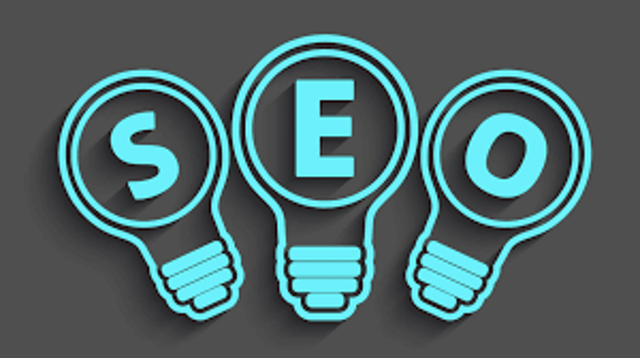If you’re planning your SEO strategy for 2025, you’ve probably wondered: Which matters more—on-page SEO or off-page SEO? This debate isn’t new, but it’s become more important as search engines evolve. Understanding how on-page SEO and off-page SEO each affect your visibility can make or break your rankings.
In this guide, we’ll compare on-page SEO and off-page SEO, explore how each influences SEO ranking factors, and help you decide where to focus first.
What is On-Page SEO?
On-page SEO means improving everything inside your website. This includes:
- Keyword Research & Placement: Choosing the right keywords (like on-page SEO, off-page SEO, and SEO comparison) and using them naturally in your content.
- Meta Tags: Crafting title tags and descriptions that stand out.
- Headings: Organizing information with clear headings and subheadings.
- Content Optimization: Writing relevant, useful content that answers people’s questions.
- Image SEO: Using descriptive alt text and compressing images for faster loading.
- Internal Links: Guiding visitors to related pages within your site.
- URL Structure: Making your URLs short and meaningful.
- Mobile Responsiveness: This focuses on making sure your website adapts and displays perfectly on any device, from desktops to smartphones and tablets, providing an optimal viewing experience for all users.
- Site Speed: Improving load times to keep users engaged.
On-page SEO is about making it super clear to search engines what your website is all about, right on your actual web pages. It’s like putting clear labels on everything so they know exactly what’s inside.
What is Off-Page SEO?

Off-page SEO is about building your website’s reputation and authority through external signals. This includes:
- Link Building: Getting backlinks from trusted websites in your industry.
- Guest Posting: Writing articles for other sites to build exposure.
- Content Outreach: Sharing your content to attract more links.
- Business Listings: Adding your business to local directories.
- Forum Submissions: Engaging in relevant online communities.
- Social Bookmarking: Sharing your content on bookmarking platforms.
Think of off-page SEO as evidence that your content is trustworthy and respected by others online.
On-Page SEO vs Off-Page SEO: The Core Differences
When comparing on-page SEO and off-page SEO, think of it this way:
- On-page SEO directly involves elements you manage on your website, like your keywords, site structure, and content.
- Off-page SEO is what others think about you: backlinks, mentions, and shares.
Both are crucial, but they impact your results differently.
Aspect | On-Page SEO | Off-Page SEO |
Focus | Content & website optimization | Building authority & trust |
Control | You have full control | Partially reliant on third parties |
Time to Impact | Often faster | May take longer to see results |
Examples | Meta tags, headings, internal links | Backlinks, social shares, reviews |
Importance in 2025 | Critical foundation for visibility | Vital for credibility and higher rankings |
Why On-Page SEO Still Matters in 2025
A website needs to be properly optimized, as even strong backlinks can’t compensate for a poor foundation. In 2025, on-page SEO is still a major ranking factor because:
- Search engines need clear signals to index your pages.
- Visitors expect fast, helpful, mobile-friendly experiences.
- Content that answers questions keeps people engaged.
In other words, without strong on-page SEO, your off-page efforts will have limited impact.
Why Off-Page SEO Remains Essential
On-page SEO sets up your site’s basics, while off-page SEO proves to search engines that others trust your content. In 2025, Google’s algorithms rely heavily on authority signals:
- Backlinks act like votes of confidence.
- Mentions across the web build your brand.
- Shares on social media amplify your reach.
Ignoring off-page SEO means you’ll struggle to compete with established sites.
Which One Drives Better Results in 2025?
The honest answer: you need both.
- On-page SEO helps search engines find your site and understand what keywords it should rank for.
- Off-page SEO pushes you up the rankings by proving your authority.
Think of on-page SEO as the foundation of a house and off-page SEO as the reputation that makes people want to visit.
How E-WorkHive Can Help You Succeed
At E-WorkHive, we combine on-page SEO and off-page SEO to deliver a balanced strategy that works in 2025.
✅ On-Page SEO Services:
- Complete keyword research and targeting
- Optimized meta tags and headings
- Fast-loading, mobile-friendly pages
- Content SEO and internal linking
✅ Off-Page SEO Services:
- High-quality backlink building
- Guest posting and outreach
- Forum submissions and social bookmarking
- Business listings and citation building
By uniting both approaches, we help you get discovered—and trusted.
FAQs About On-Page and Off-Page SEO
Q1: Is on-page SEO more important than off-page SEO?
A: Neither is more important—they work together. Think of on-page SEO as building your website’s structure, and off-page SEO as proving its authority.
Q2: How long does it take to see results?
A: On-page improvements can impact rankings in weeks. Off-page SEO may take 3–6 months for full results.
Q3: Can I do SEO myself?
A: You can, but professional help ensures nothing gets overlooked and saves time.
Q4: Do I need to keep investing in SEO?
A: Yes. SEO is ongoing because competitors and algorithms constantly change.
Q5: How do I measure success?
A: Look at keyword rankings, organic traffic growth, and conversions.
Q6: What makes E-WorkHive different?
A: Our team combines proven strategies, transparent reporting, and customized solutions tailored to your goals.
Ready to Get Started?
Combining on-page SEO and off-page SEO is the key to lasting results in 2025. If you’re ready to build your online visibility and drive consistent growth, E-WorkHive is here to help.
🌟 Request your FREE SEO audit today!
📧 Email: eworkhive@gmail.com
📱 WhatsApp: +91 9811558861
🌐 Website: www.eworkhive.in






